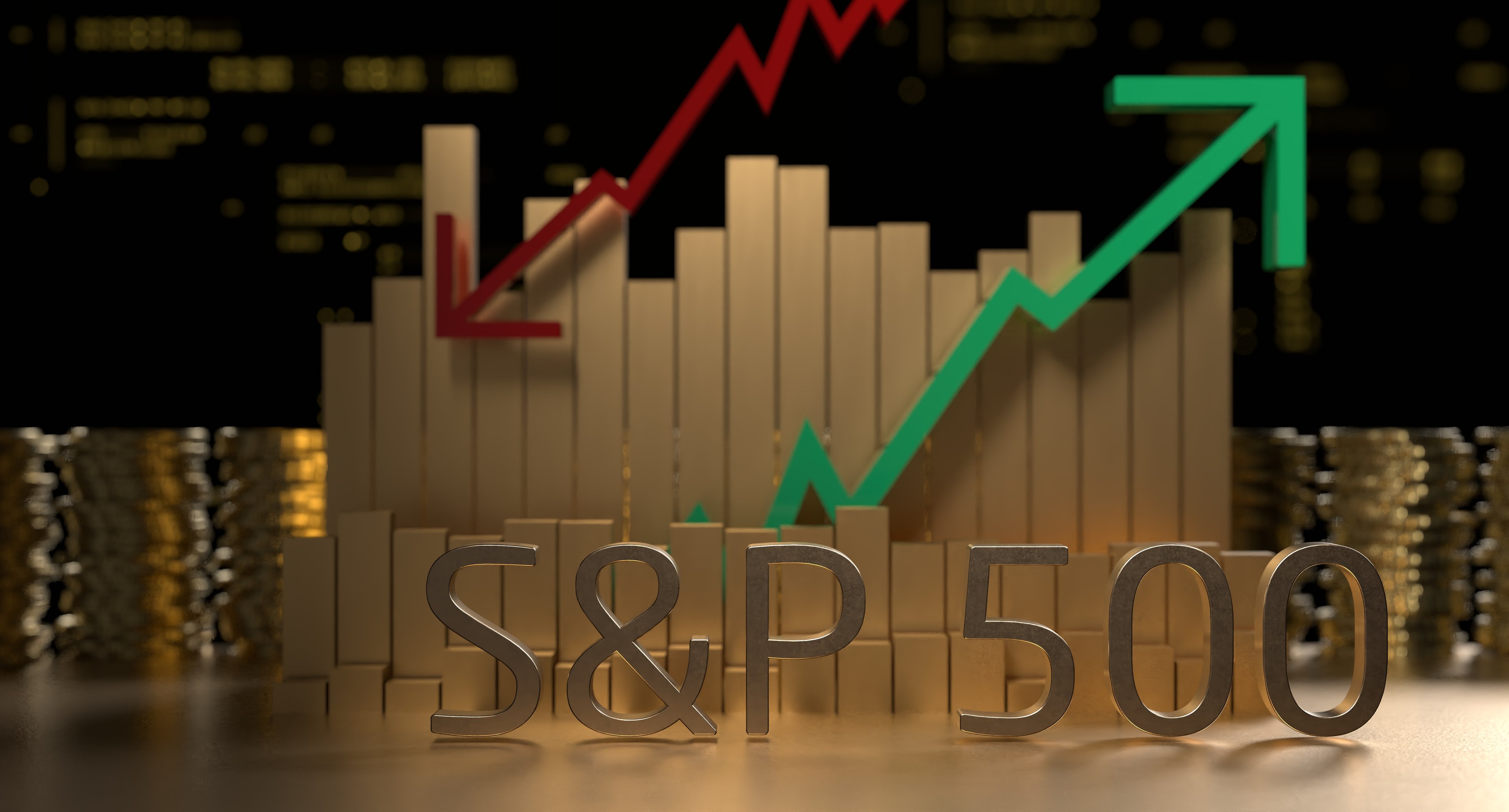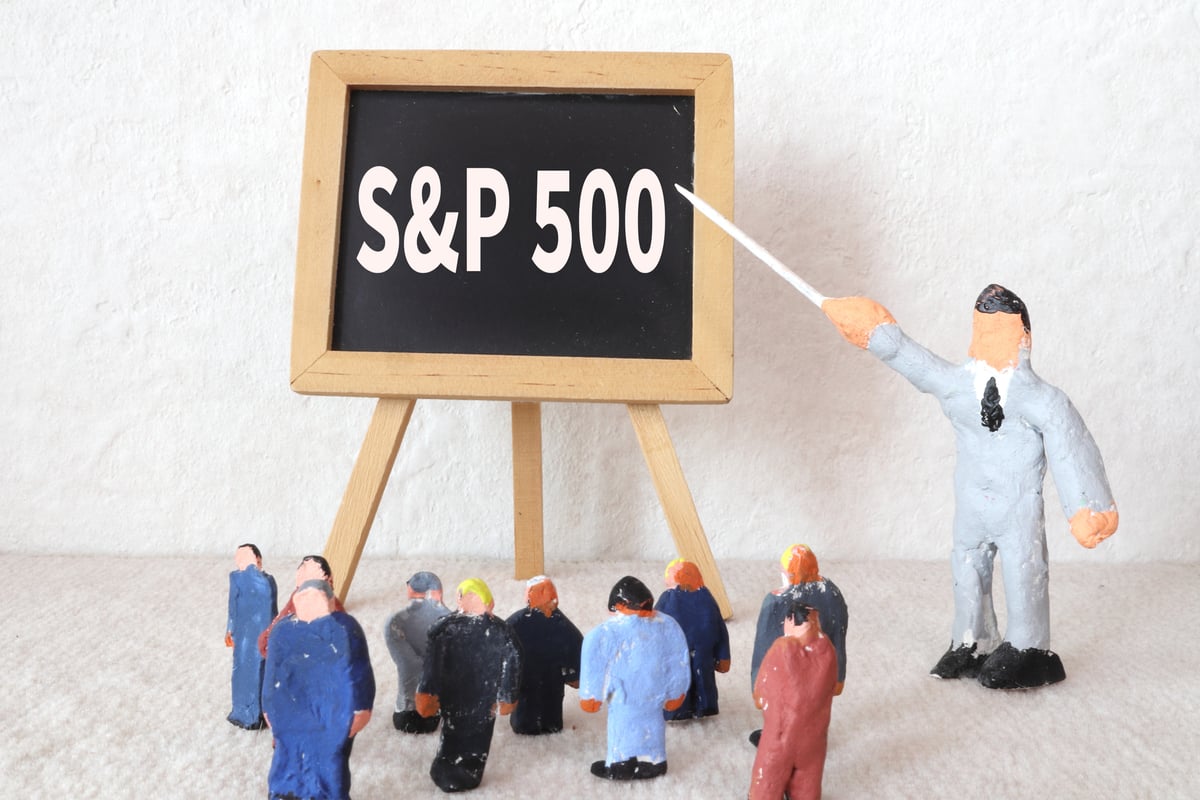Most of the time, one index fund is about as good as another. The majority of stocks rise and fall as a herd, after all. If you put a $2,000 investment toward a broad cross-section of any sliver of the market, you'll benefit from the market's long-term bullish tide. And that's all you're really trying to do with the money you have available to invest.
Every now and then, though, things get a little bit squirrelly. That's the case now. A handful of technology stocks have been catapulted higher thanks to their underlying companies' involvement in the artificial intelligence revolution, skewing the overall market's usual balance.
And it's bad. Real bad. In fact, it's bad enough that you might want to make a point of not buying -- and maybe even selling -- the market's most popular index-based exchange-traded funds (or ETFs) right now with that $2,000 in available funds and instead own something that poses much less risk, and maybe even brings more potential upside to the table.
One option fits the bill perfectly.

Image source: Getty Images.
One of these things is not like the others
Don't misunderstand. Conventional index investing isn't dead. It's still most investors' best bet for building long-term wealth, in fact, since picking individual winners remains incredibly difficult to do -- so difficult that even most stock-picking pros consistently underperform the broad market's overall returns.
Sometimes, however, there's good reason to tweak the idea.
But first things first.
As you almost certainly know, AI-related stocks have outright crushed the market since the artificial intelligence revolution began in earnest with the late-2022 public launch of ChatGPT. Nvidia shares have, of course, led the way with a 1,200% from that point, en route to the company's current market-leading market cap of $4.75 trillion. Several familiar names aren't too far behind performance-wise for the same ultimate reason, however, including Microsoft, Amazon, Alphabet, and Broadcom.
Except, these artificial intelligence-related tickers are the only truly stellar performers for the time frame in question, driving the bulk of the S&P 500's (^GSPC 0.19%) 78% gain since the end of 2022. Number-crunching from Yardeni Research suggests that the so-called "Magnificent Seven" stocks alone account for roughly one-third of the S&P 500's recent bullish performance.
This situation creates a major risk for newcomers now. That is, the U.S. stock market's seven biggest companies collectively account for 39% of the S&P 500's value. If the artificial intelligence bubble that buoyed these tickers so much ends up popping, it's going to take a sizable toll on index investors who are supposed to be at least somewhat shielded from this sort of setback.
Fortunately, there's a simple solution.
The name says it all
Just as the name suggests, the Invesco S&P 500 Equal Weight ETF (RSP +0.00%) holds equally sized positions in all of the S&P 500's constituents, in contrast with more familiar cap-weighted exchange-traded funds like the SPDR S&P 500 ETF Trust (SPY 0.20%) or the Vanguard S&P 500 ETF (VOO 0.20%). For perspective, whereas RSP's position in every S&P 500 ticker is more or less maintained at 0.2% of the fund's total value, Nvidia currently accounts for more than 8% of the Vanguard S&P 500 ETF's and SPDR S&P 500 ETF Trust's total portfolios. Microsoft and Apple aren't far behind that, at an allocation of just under 7% each.
There's the rub with the SPDR S&P 500 ETF Trust and Vanguard S&P 500 ETF. If the AI bubble unexpectedly bursts, too many investors could end up a bit shell-shocked at how much ground their index holdings could lose in a hurry.

NYSEMKT: RSP
Key Data Points
That's not the only way Invesco's S&P 500 Equal Weight ETF is smartly balanced for its owners, though.
Although it's not by direct design, this equal-weighted approach also means Invesco S&P 500 Equal Weight ETF's sector weighting is at least a little better balanced than most index funds. For perspective, whereas technology stocks account for 36% of the value of Vanguard S&P 500 ETF and the SPDR S&P 500 ETF Trust, that figure is pared back to a more palatable 15% for Invesco S&P 500 Equal Weight ETF. Conversely, while industrial stocks only account for about 8% of SPDR S&P 500 ETF Trust and Vanguard S&P 500 ETF's present values, for the Invesco S&P 500 Equal Weight ETF, that number is nearly 16%, giving its owners more meaningful exposure to a sector that may be primed for significant gains.
Make no mistake -- it's a hedge (albeit a smart one)
There's an obvious downside to putting your $2,000 purchase into the Invesco S&P 500 Equal Weight ETF over other index-based ETFs, of course. That is, if the market's current AI-driven technology stocks continue to soar, Invesco S&P 500 Equal Weight ETF will likely lag the performance of SPDR S&P 500 ETF Trust and Vanguard S&P 500 ETF. That's the risk, and the trade-off.
This is also a scenario, however, where you can maybe have at least a little bit of your cake and eat it too, so to speak. You'll simply want to step into Invesco's equal-weighted fund instead of Vanguard's or State Street's (the manager of the SPDR family of exchange-traded funds) flagship cap-weighted index ETFs, but remain invested in the artificial intelligence movement with a few hand-picked individual AI stocks, or maybe even an AI-specific ETF.
The one thing you arguably don't want to do right now is nothing, and ignore the glaring reality that the S&P 500 has reached a wildly high price/earnings ratio of 26 times its trailing earnings, specifically because of a small handful of stocks in the artificial intelligence space. It doesn't mean you have to make any sweeping changes to your portfolio (whatever size it is). But it wouldn't be wrong to at least play a little simple defense here that doesn't cost you anything in the long run. Heck, $2,000 is still a decent sum of money that you want to make the most of.








